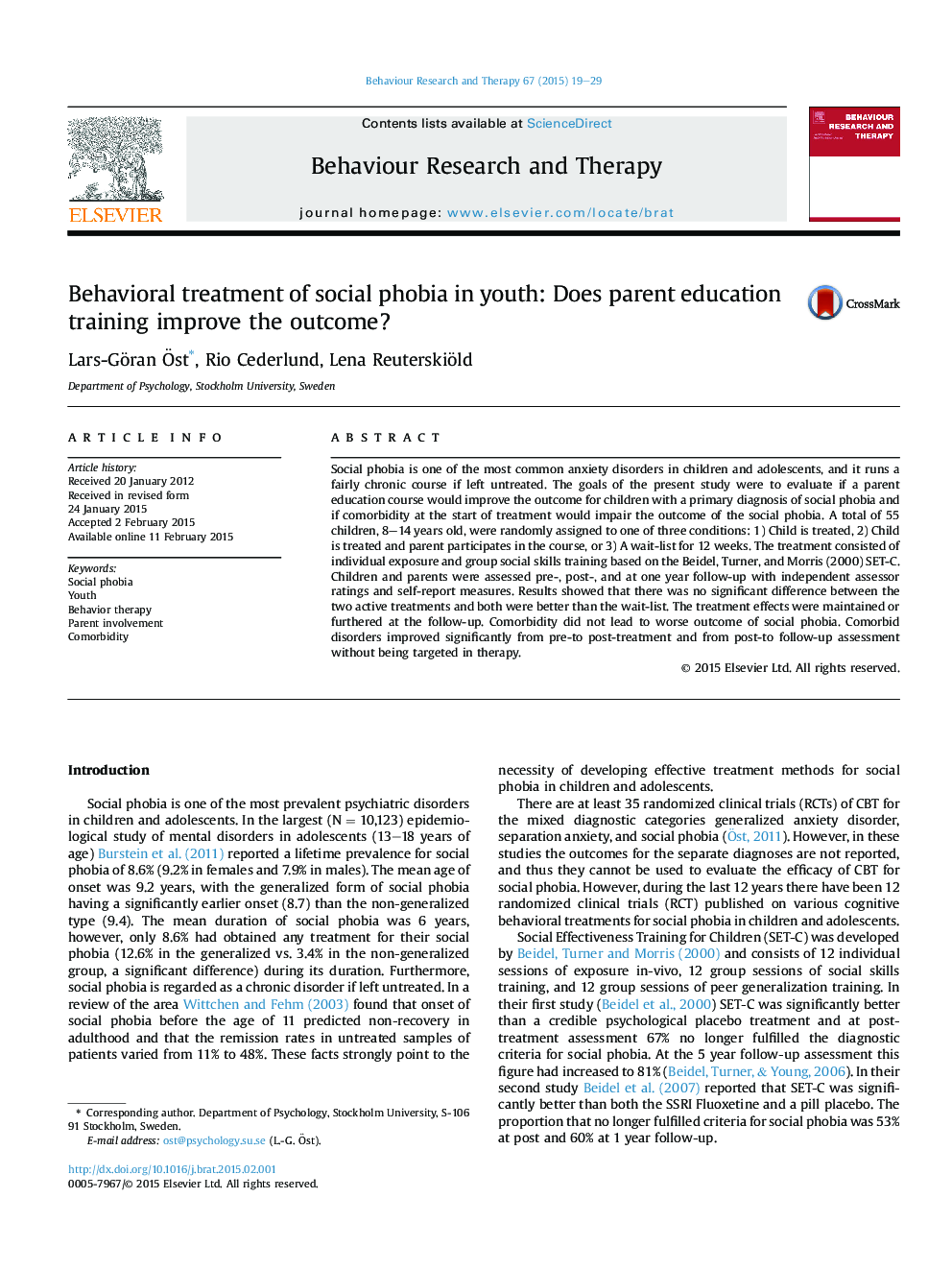| Article ID | Journal | Published Year | Pages | File Type |
|---|---|---|---|---|
| 901823 | Behaviour Research and Therapy | 2015 | 11 Pages |
•Youth with social phobia were treated with individual exposure and group social skills training.•Child only treatment was compared with child treatment plus a parent education course.•The parent involvement did not improve the outcome for children.•The presence of comorbidity did not impede treatment outcome for social phobia.•Comorbid disorders improved significantly from pre to post and further to 1 year follow-up.
Social phobia is one of the most common anxiety disorders in children and adolescents, and it runs a fairly chronic course if left untreated. The goals of the present study were to evaluate if a parent education course would improve the outcome for children with a primary diagnosis of social phobia and if comorbidity at the start of treatment would impair the outcome of the social phobia. A total of 55 children, 8–14 years old, were randomly assigned to one of three conditions: 1) Child is treated, 2) Child is treated and parent participates in the course, or 3) A wait-list for 12 weeks. The treatment consisted of individual exposure and group social skills training based on the Beidel, Turner, and Morris (2000) SET-C. Children and parents were assessed pre-, post-, and at one year follow-up with independent assessor ratings and self-report measures. Results showed that there was no significant difference between the two active treatments and both were better than the wait-list. The treatment effects were maintained or furthered at the follow-up. Comorbidity did not lead to worse outcome of social phobia. Comorbid disorders improved significantly from pre-to post-treatment and from post-to follow-up assessment without being targeted in therapy.
